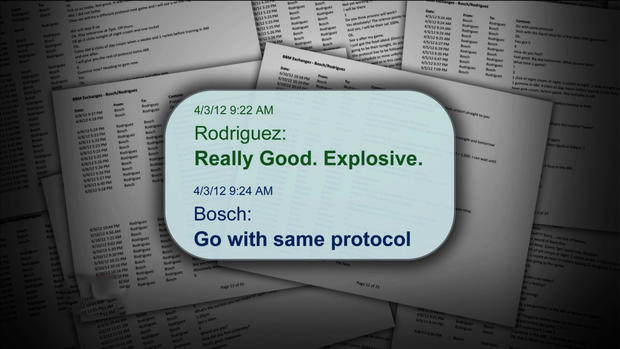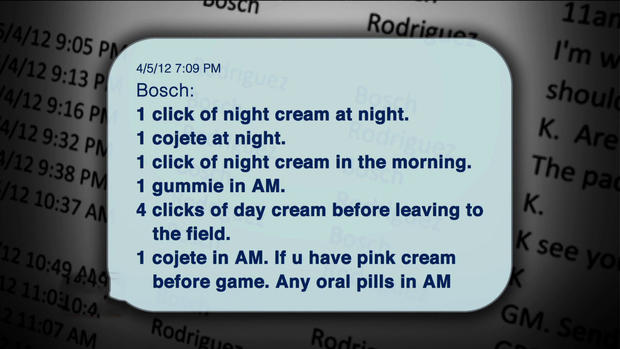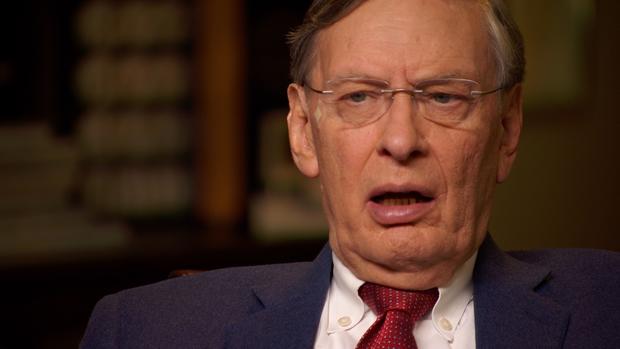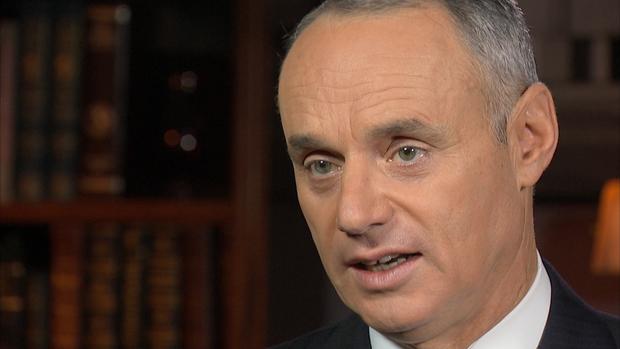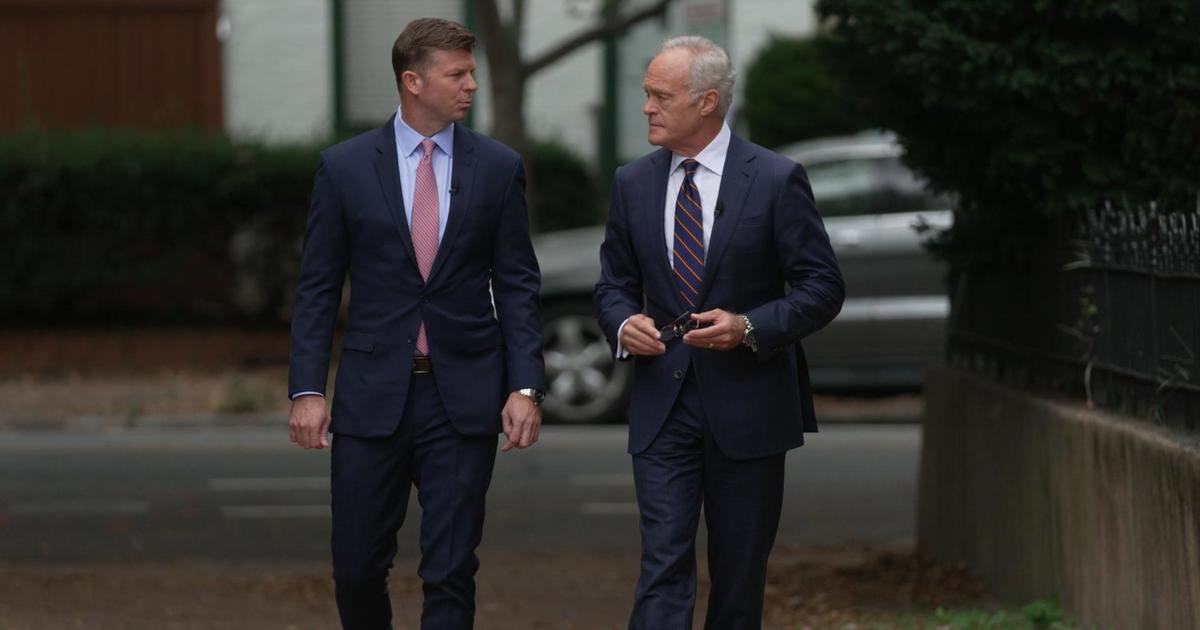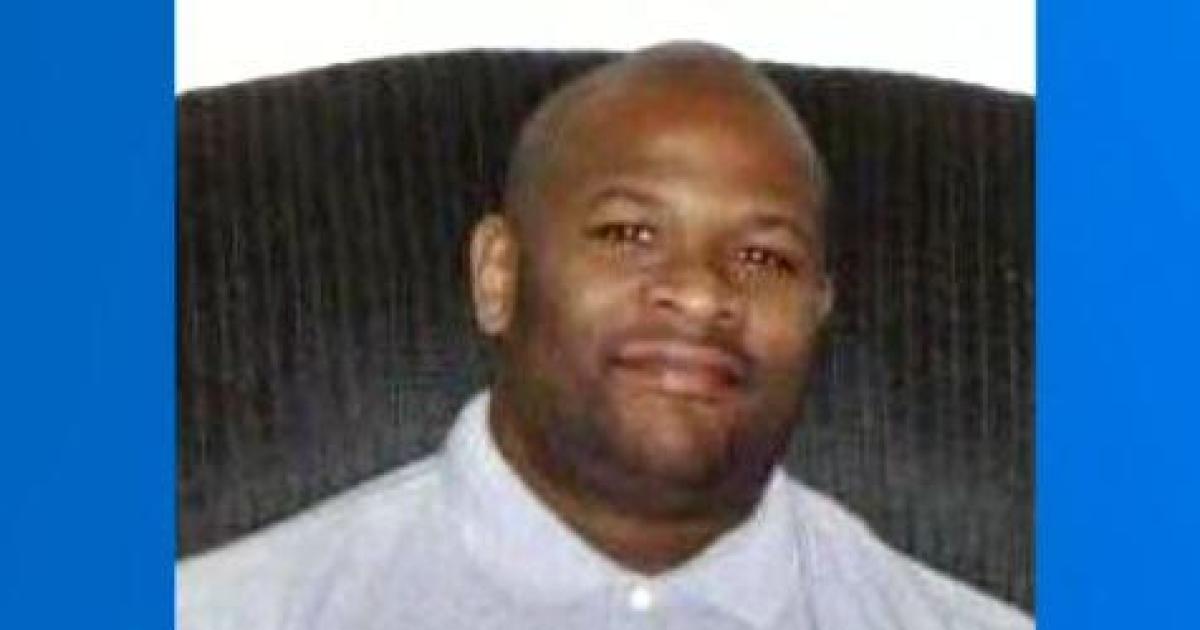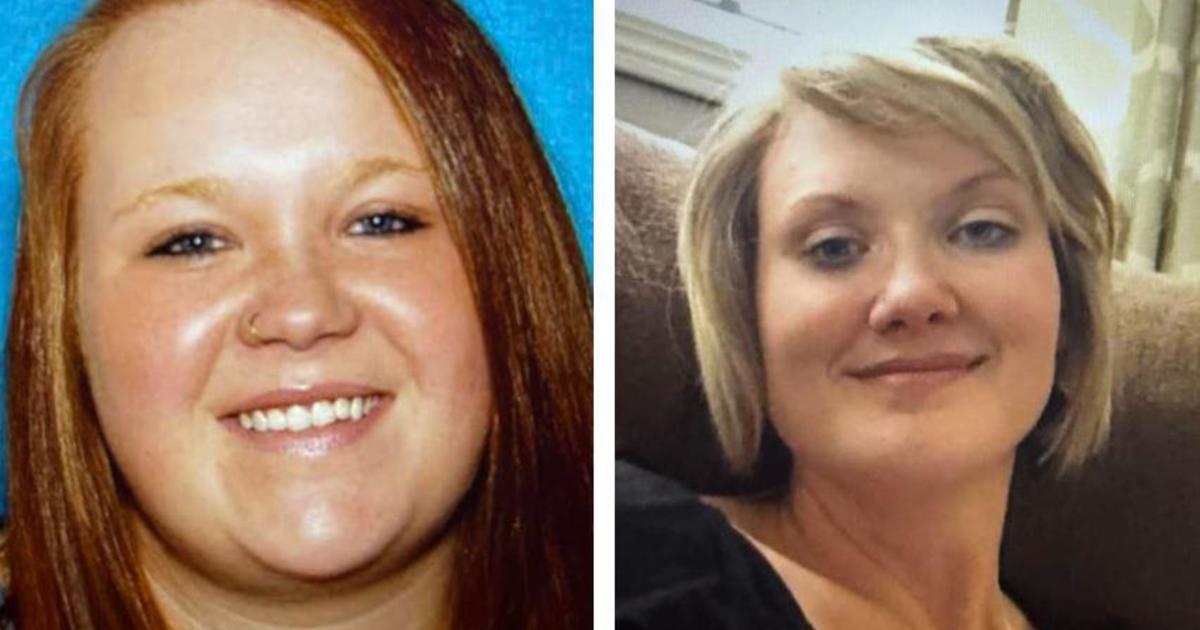The Case of Alex Rodriguez
The following is a script from "The Case of Alex Rodriguez" which aired on Jan. 12, 2014, and was rebroadcast on Aug. 10, 2014. Scott Pelley is the correspondent. Michael Radutzky, Emily Rand and Andrew Bast, producers.
Last Tuesday, Anthony Bosch agreed to plead guilty to a felony charge of distributing a controlled substance, namely testosterone. Bosch had been under investigation for selling performance enhancing drugs to a range of professional athletes. The most famous was Yankees third baseman Alex Rodriguez.
Last summer, after Bosch was exposed, Rodriguez and 13 other players, all Bosch's clients, were suspended. All accepted their penalties except Rodriguez who appealed. After a contentious private hearing, Major League Baseball's arbitration judge took Rodriguez out of the game for the 2014 season. This, despite the fact that there is no positive drug test for Rodriguez. After the decision, Rodriguez repeated that he has never taken performance-enhancing drugs in the years that he's played for New York.
Tonight you are going to hear details of the evidence -- much of it from Bosch himself, who testified for five days behind closed doors. As we first reported in January, what Bosch said in that hearing sealed the fate of baseball's highest-paid star.
Scott Pelley: Once Alex Rodriguez was fully into your protocol, what were the various banned substances that he was taking?
Anthony Bosch: Testosterone, insulin growth factor one, human growth hormone, and some different forms of peptides.
Scott Pelley: All of them banned?
Anthony Bosch: All of them banned.
Scott Pelley: And he knew that.
Anthony Bosch: He-- yes, he-- he did.
Scott Pelley: And you knew that?
Anthony Bosch: And I knew that.
Scott Pelley: Was Rodriguez injecting himself with these substances?
Anthony Bosch: Alex is scared of needles. So at times-- he would ask me to inject.
Scott Pelley: You've injected him?
Anthony Bosch: Yes.
Scott Pelley: Personally?
Anthony Bosch: Personally.
Tony Bosch told us Alex Rodriguez became his client in 2010. Bosch says he's supplied pro athletes with banned drugs almost 10 years -- a corrupt sideline to his anti-aging clinic called "biogenesis" which was once in this Florida office building.
On August 4th, 2010, Rodriguez hit his 600th home run in his quest to become the greatest home run hitter of all time. Tony Bosch told us it was five days before this moment that he was summoned to a Florida hotel to meet Rodriguez for the first time.
Anthony Bosch: The first words out of his mouth were, you know, what did Manny Ramirez take in 2008 and 2009? What were you giving him-- what-- what were you giving Manny Ramirez?
Bosch says Manny Ramirez came to him at the age of 35 and the next season he nearly doubled his homeruns. Ramirez retired in 2011 after testing positive for doping. Bosch says that Rodriguez wanted in on the secret.
Anthony Bosch: Alex cared. Alex wanted to know. He would study the product. He would study the substance. He would study the dosages because he wanted to achieve all his human performance or in this case, sports performance objectives. And the most important one was the 800 Home Run Club.
Scott Pelley: The 800 Home Run Club?
Anthony Bosch: Which was only going to have one member, Alex Rodriguez.
"Alex cared. Alex wanted to know. He would study the product. He would study the substance. He would study the dosages because he wanted to achieve all his human performance or in this case, sports performance objectives. And the most important one was the 800 Home Run Club."
Bosch told us, to tailor a doping program for Rodriguez, he needed to know how long various drugs stayed in Rodriguez's body. He says doses and timing were critical so Rodriguez would not test positive after a game. Bosch says he often drew Rodriguez's blood at specific times to see how quickly the drugs dissipated. He remembers, one night, a blood test was supposed to be done precisely at 8 o'clock, but Rodriguez was in a Miami club.
Anthony Bosch: So we ended up drawing the blood in the bathroom of this one restaurant slash bar slash club in the bathroom stall at 8:00 p.m.
Scott Pelley: With the crowd there?
Anthony Bosch: With the crowd right there.
Scott Pelley: People coming in and out of the men's room, I take it. And you're in a stall with Alex Rodriguez drawing his blood?
Anthony Bosch: Yes. As crazy as that sounds.
Scott Pelley: What were you thinking?
Anthony Bosch: I'm not getting paid enough.
Bosch told us he was getting paid $12,000 dollars a month in cash. In return, Bosch prepared this elaborate drug schedule for Rodriguez. Bosch says that his records show the days and times of injections, plus when to use skin creams, and oral medications. Six substances on this list are banned. One is testosterone troches or lozenges -- Bosch also calls them gummies -- which, he says, were taken in combination with growth hormone and all the rest.
Anthony Bosch: He would put one of these troches in his mouth probably about ten, 15 minutes before game time, or as soon as he went into the field. A player could take it right before game time. And by the time they get back into a locker room after the game and there was any possibility of testing, they would-- they-- they would test negative. They would test clean.
Scott Pelley: If you were telling Alex Rodriguez to take these gummies a few minutes before the game, he's taking these in the locker room or the dugout. That's quite an image.
Anthony Bosch: Quite an image. They're so small that you could literally while sitting in the dugout take it, put it in your mouth, and people could think it's sunflower seeds or-or-or a piece of candy or a piece of gum, for that matter.
Scott Pelley: And how would that help if he took it just a few minutes before a game?
Anthony Bosch: Well, now all of a sudden, his levels of testosterone are higher. It gives him a little bit, it gives him more energy. It gives him more strength. It gives him more focus. And in combination with the growth hormone, that combination would make playing the game of baseball a lot easier.
Scott Pelley: You know a lot of people are watching this interview right now saying, "How could he? How could you? What's the answer to that question?"
Anthony Bosch: I did it because I had a responsibility, I felt I had a responsibility to do it, to let them know that if they're gonna take something like this, do it the right way.
Scott Pelley: You might have said to these players when they came to you, "Look, don't do any of this stuff. It breaks the rules of baseball. Don't do this." Did you ever say that?
Anthony Bosch: No. I never said that. My approach to all this, I'll stand by it now and I'll stand by it forever, was you're gonna do this. Let me show you how to do this. Let me educate you. And let's do it the right way. And sure, let's not get caught while we're doing this.
Bosch's education in doping is self-taught. He studied at a medical school in Belize but he has never had a license to practice. He grew up in Miami and to us he seemed like a troubled guy, heavy drinker, heavy smoker -- dealing in prescription drugs. In 2013, the Florida Department of Health cited him for practicing medicine without a license and fined him $5,000.
Scott Pelley: A lotta people are gonna say if you hadn't been caught you'd still be doing it?
Anthony Bosch: I would have to say, yes. But that's not what happened. I got caught. So, I did what was the right thing to do. So, yes would I be doing it if I didn't get caught? I'd still be doing it. I'm here to say the truth, so that is, that is the truth.
One thing is certainly true--Bosch has lied about this case--he's had it both ways. This is what he said after the scandal broke.
[Anthony Bosch: No comment. I'm a nutritionist. I don't know anything about performance-enhancing drugs.]
Bosch says the story he tells today is backed up by hundreds of text messages that he says he exchanged with Rodriguez. We have more than 500 of them. They are BlackBerry "BBM" messages. Major League Baseball says the pin number attached to the messages matches a BlackBerry owned by Rodriguez. Bosch says those testosterone lozenges were taken both before and during a game. This question came from the device linked to Rodriguez. "Gummie at 1045am?... Game at 1pm." Bosch responded, "10:30am."
Scott Pelley: What difference does 15 minutes make?
Anthony Bosch: All the difference in the world. Every difference in the world. Every minute counts.
Scott Pelley: At what point in a game was too late to take a troche, what inning?
Anthony Bosch: In Alex's case probably right after-- right after the first inning, second inning.
Any later than that and there was a chance the testosterone would turn up in the league's random, post-game, urine tests. Bosch says that Rodriguez was tested by baseball more than a dozen times--all turned out negative. He told us he'd given Rodriguez tips on ways to beat that test.
Anthony Bosch: You want to start the test and then introduce the urine cup into the stream and what you want to capture is the middle of the stream, not the beginning or not the end of the stream that was extremely important because most of the metabolites are either in the beginning of the stream or at the end of the stream.
Scott Pelley: It's that precise?
Anthony Bosch: It's that precise.
During this 2012 game, Rodriguez drove in three runs, and smashed a 418-foot double.
Announcer: A-Rod hits a deep one to center. Alex Rodriguez in his hometown of Miami, has given the Yankees a 4-2 lead.
The next morning, a message from the Rodriguez BlackBerry read "Really good. Explosive." Bosch replied "Go with same protocol."
What we didn't find in the messages is the name of any performance-enhancing drug. Rodriguez's lawyer has said that's because they were talking about nutrition--but Bosch says it's because they used code words. He says the word cohete--(misspelled in the message) is Spanish for "rocket"--and that meant injectable drugs, according to Bosch. "Night cream" was loaded with testosterone. In 2012, a message attributed to Rodriguez's BlackBerry said "feel good, big day tomorrow, what do you have?" Bosch texted back these instructions:
Scott Pelley: "One click of night cream at night, one cohete at night, one click of night cream in the morning, one gummy in the a.m., four clicks of day cream before leaving the field, one cohete in a.m., pink cream before the game, any oral pills in the a.m." Alex had a great game. He doubled; he scored twice. What did his performance tell you about what you had told him to take?
Anthony Bosch: That we had the right protocol.
Scott Pelley: I wonder why he trusted you so much.
Anthony Bosch: I was very good at what I did. I had a track record. I have been doing this for many years. If you had the knowledge that I had, the experience that I had, and you know the truth about the testing and the flaws, it was almost a cake walk actually.
Scott Pelley: A cake walk to beat the system?
Anthony Bosch: To beat the system.
Scott Pelley: To cheat?
Anthony Bosch: To cheat.
Scott Pelley: But did you ever think about the integrity of the game?
Anthony Bosch: No, I never did. I didn't know-- I-- I love the game of baseball. I--
Scott Pelley: How can you love the game of baseball and do this to the game?
Anthony Bosch: Because unfortunately, this is part of baseball. This is part of baseball. When you ask these guys to play 100-plus games back to back, jump on a plane, get off a plane, all these road trips, their bodies break down. This has always been part of the game. Always been part of the game, and so their nutrition is-- it's extremely important.
Scott Pelley: But, come on, Tony, we're not talkin' about nutrition or massage therapy we're talking about drugs that are banned, that are illegal in the sport. They knew what they were doing. You knew what you were doing, and it cuts to the heart of fair play.
Anthony Bosch: What is fair play? Let me ask you that question. How about-- how about this? Follow me in thought. Here I am, I'm Alex. And I'm at the plate, and I know that the guy that's throwing the 95 mph pitch is on sports performance-enhancing drugs. The guy who's gonna catch the ball is on a program. The guy that I have to tag at third from a throw from centerfield when he's sliding-- he's on it. Fair play? Fair play-- if everybody's on it, wouldn't that be fair play?
Of course, not everybody is on it and those who play clean are probably outraged right about now by that sweeping indictment Bosch made in our interview. Baseball Commissioner Bud Selig told us that the league's unprecedented investigation was aimed at protecting those clean players. When we come back, Tony Bosch tells us he had reason to believe he would be killed if he gave up Alex Rodriguez.
The League's Investigation
After losing his appeal in January, Alex Rodriguez called the evidence against him "false and unreliable." Referring to Tony Bosch he said that the arbitration panel relied on the "hearsay testimony of a criminal." This scandal first broke in 2013 when an unhappy business partner of Bosch stole client records from Bosch's clinic and shared them with a newspaper, the Miami New Times. What came next was a contest between Major League Baseball and baseball's richest player. The league's investigation was more "FBI" than MLB. But, as we first reported in January, Baseball Commissioner Bud Selig told us this was a battle to save the game and he was determined not to lose to Rodriguez.
Bud Selig: In my judgment his actions were beyond comprehension. And I'm somebody who's now been in the game over 50 years.
Scott Pelley: Never seen anything like it?
Bud Selig: I hadn't, no.
Scott Pelley: And so you decided to make an example of him?
Bud Selig: I wouldn't call an example. I think the penalty fit what I saw was the evidence.
Scott Pelley: What was it about the Alex Rodriguez case that was an outlier for you?
Bud Selig: Scott, as I looked at everything on all the players and then I got to Alex Rodriguez, and you put all the drug things on one side and then all the things that he did to impede our investigation and really do things that I had never seen any other player do, I think 211 games was a very fair penalty.
In the early days, after the clinic records were published, Tony Bosch found himself on the same side as Rodriguez--denying all. But Bosch told us Rodriguez wanted insurance that his secrets would be kept. Bosch says that associates of Rodriguez met him at this apartment building and asked him to sign an affidavit, which said he had never supplied performance-enhancing drugs to Rodriguez. This made Bosch nervous, he wanted a lawyer and he refused to sign. Then a couple of days later, he says, Rodriguez's associates met him at this restaurant.
Anthony Bosch: One of his associates said, "Well you should, I think you should leave town. We're gonna get you a plane ticket to Colombia. We want you to stay there until this blows over. We're gonna pay you." I forgot what the number was, $25,000 or $20,000 a month. "Then when you come back, we'll, you know, we'll give you another $150,000."
Scott Pelley: Rodriguez' people told you to go to Colombia?
Anthony Bosch: Colombia.
Scott Pelley: And they'd take care of you there?
Anthony Bosch: And they'd take care of me there.
Bosch says he was suspicious and turned down the offer.
Scott Pelley: Did you believe that Alex knew about this offer, knew about this meeting?
Anthony Bosch: Nothing happens without Alex's approval. I used to be in that inner circle. And nothing happens without him approving.
We wanted to ask Rodriguez about that charge and all of the allegations, but he declined an interview. His attorney Joe Tacopina described the allegations as unbelievable.
Scott Pelley: Are you saying that Alex Rodriguez was not party to or aware of any offers to bribe Bosch or threaten him?
Joe Tacopina: Absolutely not. He didn't bribe anyone. There was no allegation that he bribed anyone. And the notion that Bosch is now coming on a television interview without the benefit of cross-examination or an oath is laughable.
Scott Pelley: Commissioner Selig told us that the thing for him that was beyond the pale was what he describes as all of the efforts to obstruct Major League Baseball's investigation.
Joe Tacopina: Scott, it's unbelievable. When you say that-- I looked and I just-- I'm in disbelief when I hear that because it's almost the exact opposite. Major League Baseball went on an effort and a campaign to obstruct justice by forcing and compelling witnesses, threatening witnesses. And they have the gall-- the gall to accuse Alex Rodriguez of obstructing the investigation? I mean, it's laughable.
Tony Bosch told us after he turned down the "Colombia" offer, things got sinister. He says his ex-girlfriend received a text message, in Spanish, saying Bosch would not live to see the end of the year. His world was shrinking but he didn't know the half of it.
At the Manhattan headquarters of Major League Baseball, Rob Manfred had his sights on Bosch. A lawyer by training, Manfred runs Major League Baseball as the chief operating officer. Commissioner Selig told him to do what he had to do to get to the bottom of the scandal. Manfred hired the former director of the United States Secret Service and a number of retired FBI agents--more than 30 investigators in all. In the underworld of Miami, word got around. And a call came to Major League Baseball. Turned out there were more documents from Bosch's Biogenesis clinic.
Rob Manfred: We got a call from a gentleman who identified himself only as Bobby, and said he had the Biogenesis documents and offered to make an agreement with us to get those documents.
Scott Pelley: Make an agreement? He offered to sell them to you.
Rob Manfred: That's correct. That's correct.
Scott Pelley: And you offered to buy them?
Rob Manfred: He offered to sell 'em, and we bought them.
Scott Pelley: How much?
Rob Manfred: $100,000 originally, and then there was a second purchase for $25,000.
Scott Pelley: But when you pay $125,000 to a guy who only identifies himself as Bobby, doesn't that immediately call into question the authenticity of the documents? He's gonna do anything he has to do to collect your $125,000.
Rob Manfred: We were eyes wide open with respect to the questions that would surround these documents in terms of authenticating them in any legal proceeding, making sure they hadn't been doctored.
To authenticate the documents, Manfred needed the cooperation of Tony Bosch.
Scott Pelley: Your team files suit against Tony Bosch.
Rob Manfred: That's correct.
Scott Pelley: To put pressure on him.
Rob Manfred: Yes, we had sued him. We'd sued his brother-- yes.
Scott Pelley: You were caught in a vise.
Anthony Bosch: Yes.
Scott Pelley: What were you thinking in that moment?
Anthony Bosch: I was in a dark place. It was-- I-- excuse me. I had no idea what I was going to do next. And I relied on the advice of one of my lawyers.
Scott Pelley: And that advice was what?
Anthony Bosch: "Let's go to Major League Baseball. Let's align ourself with somebody as powerful as Alex."
Scott Pelley: Your telephone rings, and it's Tony Bosch's lawyer, finally.
Rob Manfred: Right.
Scott Pelley: What did he want?
Rob Manfred: He wanted a direct meeting with me.
On May 9th, 2013, Rob Manfred and the MLB's chief counsel, Dan Halem, met Bosch at this Miami restaurant.
Rob Manfred: He was fidgety, nervous, uncomfortable.
Scott Pelley: What did he want?
Rob Manfred: His principal concern from the very beginning was his personal safety.
Scott Pelley: What did he tell you?
Rob Manfred: He told us that there had been threats on his life. We knew from our own investigation and this a great source of concern to us that there were individuals in this web of people that surrounded Biogenesis that had criminal records and that, by reputation, were dangerous.
Scott Pelley: Were these the associates of baseball players?
Rob Manfred: Some of them were associates of baseball players which was an issue of great concern to us, some of them were associates of Alex Rodriguez.
Scott Pelley: Are you saying that Alex Rodriguez and or his associates were involved in threatening to kill Tony Bosch?
Rob Manfred: The individual that was of greatest concern to Mr. Bosch was a known associate of Mr. Rodriguez.
Scott Pelley: Do you think Rodriguez knew about the threats to Bosch's life?
Rob Manfred: I don't know what Mr. Rodriguez knew, um, I know that the individual involved has been an associate of Mr. Rodriguez's for some time.
The deal was done right there. Bosch would testify and in return baseball would pay for his security, pay his legal fees, drop its lawsuit and defend him against any other legal claims. Bosch began telling baseball about the effort to obstruct its investigation-- including this bank statement for an unsolicited wire transfer of just under $50,000 to Bosch's lawyer from "A-Rod Corporation." -- Rodriguez's private company. The money came before Bosch began to cooperate with baseball. Bosch's lawyer returned it.
Scott Pelley: You think that's a bribe?
Rob Manfred: I do. I do.
Rodriguez's appeal of his suspension was heard by a three-member arbitration panel made up of Rob Manfred, David Prouty of the Players Union, and Fredric Horowitz, an independent arbitrator. During the hearing, Rodriguez's lawyer Joe Tacopina challenged Bosch's testimony.
Joe Tacopina: Aside from all his credibility issues-- his past lies-- the fact that he has all the motive in the world to try and help Major League Baseball because it will help him get out of a massive criminal prosecution as they've promised to do, just look to the science. Science will defy Tony Bosch. It's Tony Bosch's word uncorroborated by anything and of course--science.
Tacopina says the science would show that if Bosch was doping Rodriguez, Rodriguez never could have passed a dozen drug tests. Tacopina says that Bosch was essentially paid to be a witness when baseball agreed to cover his security and legal fees.
"Science will defy Tony Bosch. It's Tony Bosch's word uncorroborated by anything and of course--science."
Scott Pelley: Alex Rodriguez has filed a suit against Major League Baseball that claims that you've paid him essentially, $5 million.
Rob Manfred: There's absolutely no basis for that claim. It's just absolutely untrue.
Scott Pelley: You say you can't pay him to be a witness, but you're paying for his security guards, you're paying for his lawyers, and you're dropping your lawsuit. Haven't you given him every incentive to tell you what you want to hear? Every incentive for him to lie?
Rob Manfred: I think that um Mr. Bosch's credibility on these issues, um whatever his motivations, whatever we did for him, was established by his willingness to come in, raise his right hand, testify, and by the fact that he had all sorts of evidence that supported everything that he said.
Scott Pelley: He's told both stories, that he had nothing to do with this, and he had everything to do with this. How is that credible evidence?
Rob Manfred: The credibility of any witness is determined by a trier fact, by looking the individual in the eye, listening to the story he tells and then lining it up with the other evidence. And frankly, nobody came in and contradicted what Mr. Bosch said. There was no witness that ever came in the case and said, "Tony Bosch isn't telling the truth."
Rodriguez never made it to the end of the arbitration hearing. When the arbitration panel turned down his request to call Commissioner Selig as a witness, Rodriguez stormed out with a parting comment to Rob Manfred.
Rob Manfred: He-- he said to me, "Rob, this is, um, BS, and you know it."
A few hours later Rodriguez showed up on CBS' New York sports radio station WFAN.
[Alex Rodriguez interview with Mike Francesa on New York's WFAN. Nov. 20, 2013.]
Mike Francesa: Were you guilty of any of these charges?
Alex Rodriguez: No and I shouldn't serve one inning.
Mike Francesa: Did you do anything wrong?
Alex Rodriguez: No.
Mike Francesa: Did you do any PEDs?
Alex Rodriguez: No.
Mike Francesa: Did you obstruct jus... anybody, any witnesses? Did you do anything that they accused you of doing?
Alex Rodriguez: No.
Mike Francesa: Nothing?
Alex Rodriguez: Nothing.
Mike Francesa: So you're guilty in your mind of nothing?
Alex Rodriguez: I feel like I should be there opening day.
Scott Pelley: Alex Rodriguez has called all of this a witch hunt.
Rob Manfred: I think the most important point to remember is that for the first time in the history of the Joint Drug Agreement, the player accused of wrongdoing did not take the stand in his own defense. So whatever Mr. Rodriguez has said publicly, the fact of the matter is the evidence in the case contains no denial from Mr. Rodriguez.
Rodriguez's suspension is costing him about $25 million in lost pay from the Yankees. A federal grand jury in Florida is meeting to determine whether anyone should be charged with a crime.
Since our story first aired, Major League Baseball has doubled the number of drug tests it conducts every season, and it has increased the lengths of its suspensions. Bud Selig has announced his retirement as commissioner of baseball. Part of his legacy is the establishment of the toughest anti-doping rules in all of American pro sports.
.jpg?v=55c0f85ebcd2b956528d9c6f5a7e8871#)
